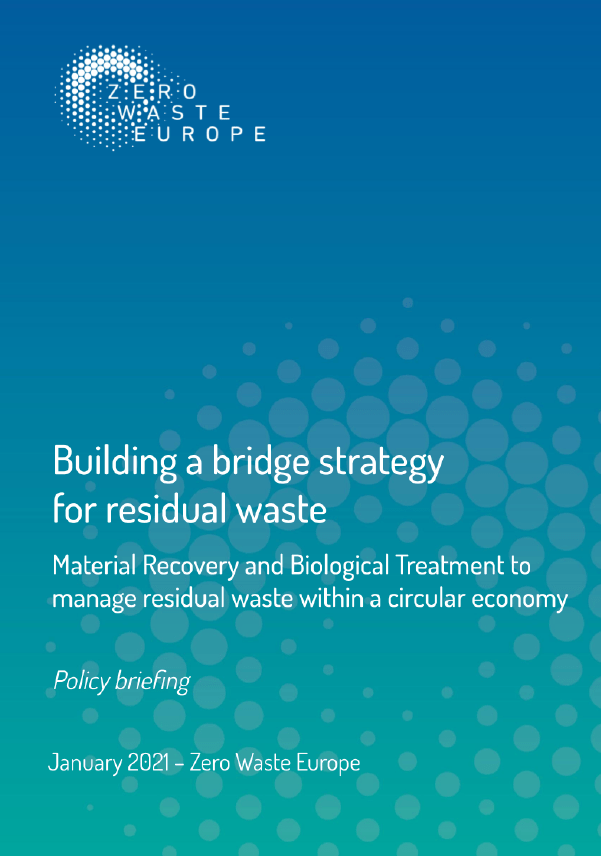Waste Management in the Circular Economy Age
The European Union, through its Circular Economy Package, has adopted an advanced roadmap on waste management for its Member States. Whilst pointing towards the reduction of waste and maximisation of reuse and recycling, this roadmap also requires giving a proper consideration for the management of residual waste.
The circular economy vision is all about preserving materials and resources in the system, and minimising so-called “leakages”, such as landfilling and Waste-to-Energy (WtE). Energy recovery from waste (through incineration or co-incineration) destroys vast amounts of resources, requires the extraction of new primary raw materials, perpetuates a linear economic model, and releases greenhouse gases (GHG) from fossil-based materials (e.g., mostly of plastics and artificial textiles). Waste management such as this does not promote the achievement of a Circular Economy (which is why the EU lately adopted the DNSH principle, i.e. “Do not significantly harm” circular economy, which excludes incineration from the EU Taxonomy of Sustainable Finance and from the Recovery Funds) .
It is therefore of utmost importance to define a solid “transitional strategy” for the management of residual waste. A strategy which goes hand in hand with the transition from the current situation towards the full potential of the circular economy, so that compliance with the regulatory obligations for disposal is ensured and, at the same time, lock-in is avoided by being flexible. This “bridge strategy” should also support the national strategies, local schemes and the EU waste management system as a whole, while working collaboratively towards waste reduction, increasing reuse, recycling, and minimising disposal.
This briefing puts forward Material Recovery and Biological Treatment (MRBT) as a waste management approach that tackles the issue of transitioning. This approach, a combination of residual waste sorting (with a view to extracting materials for recycling) and biological treatment aimed at stabilising waste (so as to avoid methane emissions from landfills), provides the perfect opportunity for states to implement a modular waste management system that considers circularity and efficiency.

